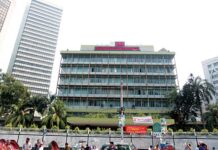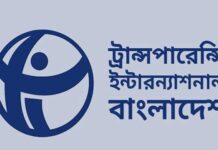Bangladesh slipped six places in terms of economic freedom to 137th position in an international ranking with a fall in scores in the areas of corruption, business and labour.
With its economic freedom score of 53.3, Bangladesh became the 137th freest nation among 186 countries in the world, according to the 2016 Index of Economic Freedom, an annual publication by The Heritage Foundation and The Wall Street Journal.
The country is still stuck in the category of “mostly unfree” countries despite the facts that it showed remarkable macroeconomic resilience and its economy grew steadily over the last five years, says the report.
“Nonetheless, overall entrepreneurial activity is disadvantaged by an uncertain regulatory environment, poor infrastructure, and the absence of effective long-term institutional support for private-sector development,” it says.
Last year, the country’s economic freedom score was 53.9, making it the 131st freest country in the world. It was ranked 132nd in 2013 and 130th in the previous year.
This year, the country’s ranking also fell to 29th from 27th last year in the Asia Pacific Region.
In South Asia, Bangladesh is only ahead of Nepal (151st). In the region, Sri Lanka (93rd) has secured the top position followed by Bhutan (97th), India (123rd), Pakistan (126th), and the Maldives (132nd).
Hong Kong retained the top position followed by Singapore, New Zealand, Switzerland and Australia.
Launched in 1995, the index measures economic freedom based on 10 quantitative and qualitative factors, grouped into four broad categories: rule of law; limited government; regulatory efficiency; and open markets.
The index covers 10 freedoms: property rights, freedom from corruption, fiscal freedom, government spending, business freedom, labour freedom, monetary freedom, trade freedom, investment freedom and financial freedom.
Each of the 10 economic freedoms within these categories is graded on a scale of 0 to 100. A country’s overall score is derived by averaging the 10 economic freedoms.
For the 2016 index, most data covers the second half of 2014 through the first half of 2015.
Based on its aggregate score, each country graded in the index is classified as “free” (combined scores of 80 or higher), “mostly free” (70-79.9), “moderately free” (60-69.9), “mostly unfree” (50-59.9) and “repressed” (under 50).
The report shows Bangladesh’s economic freedom hovered around the lower end of the “mostly unfree” category over the last five years.
Modest score improvements have occurred in just three of the 10 economic freedoms: government spending, monetary freedom and trade freedom.
According to the report, endemic corruption and criminality, weak rule of law, limited bureaucratic transparency, and political polarisation continue to undermine government accountability.
“Patchy or biased enforcement and subversion of the judicial process weaken anti-corruption efforts. The judiciary is insufficiently separated from the executive. Contract enforcement and dispute settlement procedures are inefficient, and property laws are antiquated.”
The report by the Washington-based thinktank said business start-up has become simpler, with no minimum capital required, but obtaining necessary permits remains time-consuming.
State-owned Bangladesh Power Development Board, which is responsible for electricity generation and distribution, faces ongoing financial difficulties as it continues to purchase electricity at higher prices than it charges the public.
The report says Bangladesh’s average tariff rate is a relatively high 10.7 percent. Most sectors of the economy are open to foreign investment, but state-owned enterprises distort the economy.
Despite ongoing reform of the financial sector, government ownership and interference remain considerable, undermining much-needed increases in efficiency, it adds.
Source: The Daily Star









